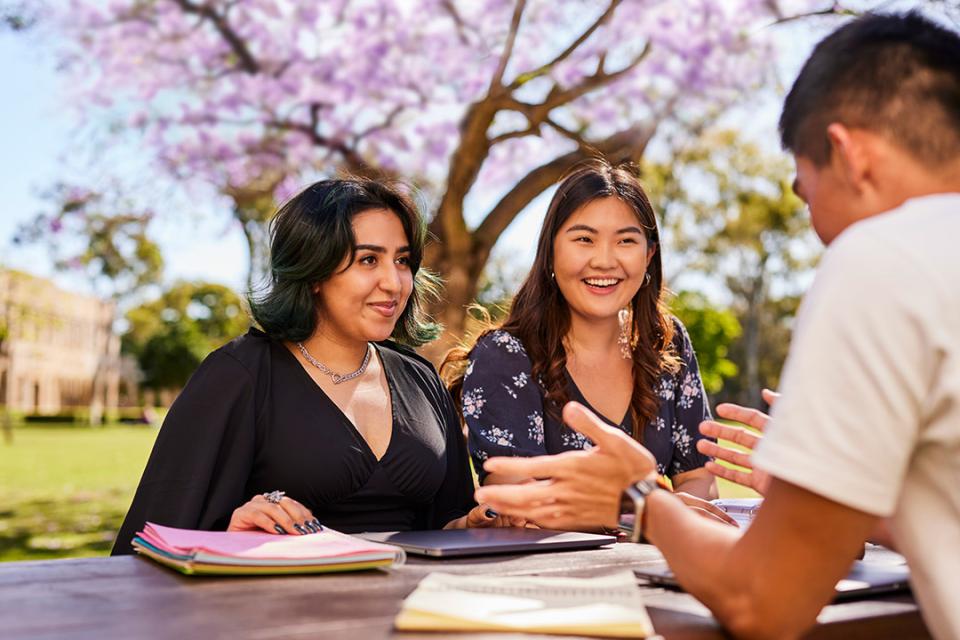Speaking English as a second language might make you feel anxious, especially when talking to classmates or giving presentations at university. But don't worry! Your time at university is a great chance to overcome this anxiety and improve your communication skills.
As someone who also speaks English as a second language, I've been through this and found ways to boost my confidence when communicating in new situations.
What is language anxiety?
Language anxiety is when you feel nervous or worried about using a new language. You might be afraid about making mistakes or being judged. This can happen when speaking, reading, or writing in that language. It can make your heart race, your hands sweaty, and you might even avoid using the language. But with some strategies, you can feel better and become more confident using the language.
Here are seven strategies that can help:
1. Understand the spotlight effect
Don't worry too much about what others think – people usually pay less attention to you than you think. This "spotlight effect" makes you feel more self-conscious. When you think everyone is looking at you, you might be too careful and worry about mistakes. But most people won't notice small errors. Knowing this can help you feel less pressure to be perfect when speaking, and you can be more comfortable with your mistakes.

2. Start small
Speaking in public in a new language can be scary. Instead of doing a big speech, start by talking about familiar things with close friends who make you feel safe. Slowly move on to more difficult conversations. This idea comes from psychologist Albert Bandura, who said that mastering small tasks makes you feel more capable. As you get used to these small steps, you'll naturally feel more confident about bigger speaking tasks.
3. Watch others
In classroom discussions, watch how others handle communication challenges. You'll see that it's normal to have difficulties, no matter your English level. We all forget words, make grammatical mistakes, or need to correct ourselves. This teaches you two things: First, see how people react when they make mistakes. Do they say sorry a lot, or just correct themselves and keep going? Second, know that everyone has these moments. This helps you learn and eases the pressure you put on yourself.

4. Be flexible
Trying to be perfect makes you more anxious. Instead, focus on getting better and practising without stress. Having an accent is okay as long as people understand you. Accept that you might not sound exactly like a native speaker, and that's fine. I’d also like to note that Australia is a very multicultural country and native speakers here are used to hearing all kinds of accents daily. By putting effort into learning difficult words and areas, you'll feel stronger and more confident in conversations.
5. Practise regularly
Practice makes perfect, as the saying goes. If you have a presentation or discussion coming up, preparing early is important. Recording yourself and listening helps you find areas to improve. Asking friends for feedback gives you new viewpoints. If you need help with pronunciation, there are many online resources. By practising regularly, you'll become more comfortable and confident when speaking English.
6. Be kind to yourself
While it's good to know some situations are hard, it's important to also appreciate yourself. Look at your progress and how much you've grown. Understand that challenges are part of learning. Facing these challenges head-on will make you feel proud and strong.

7. Ask for help
Remember, you're not alone. Ask friends, classmates, or teachers for help. If anxiety affects your study or personal life, use the available resources.
Some signs to look for:
- avoiding social events often
- feeling very anxious
- skipping classes to avoid talking
- always worrying about talking in certain situations
- any other sign affecting your life negatively.
UQ Student Central are here to help you with your well-being and learning experience. You can access support such as counselling, study assistance, and services to help you settle into life in Australia at UQ.
UQ’s English for Academic Communication (EAC) courses are free and support international students with English as a second language to succeed in their program. International students and their adult family members in Australia can also attend free English conversation clubs held at the St Lucia campus.
Final thoughts…
Speaking in public in English can be daunting. But by taking small steps, you'll get more confident and less scared. UQ is a supportive place for your journey. Try these tips, be creative, and remember – you can do it!

Writer: Camila Franco
Camila is a UQ Bachelor of Psychological Science (Honours) student and a teacher. She also volunteers in Mental Health Crisis Support. In her free time, she enjoys being in nature to relax.
For more information on our programs, life and study at UQ, visit study.uq.edu.au.





